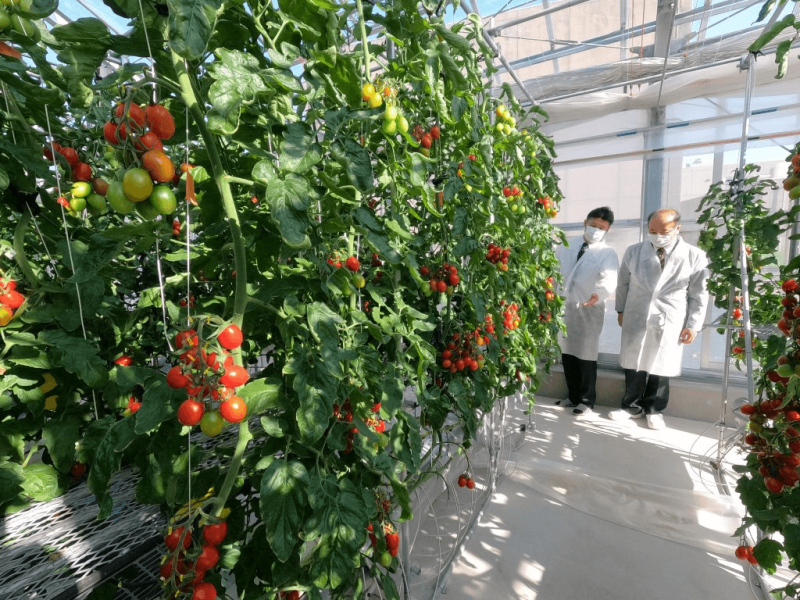This month marks the start of shipments of tomatoes that control high blood pressure, the first gene-edited food to be approved by the Japanese government for distribution and sale.
…
Japan’s first gene-edited food is a tomato that contains four to five times more GABA, a substance reported to be effective in controlling high blood pressure and alleviating stress, than a conventional tomato.
It was jointly developed by the venture capital firm Sanatech Seed (Minato-ku, Tokyo), and the University of Tsukuba using a gene-editing technology called CRISPR-Cas9 to disrupt genes that suppress the production of GABA.
When the company put out a call for monitors offering free seedlings to grow in home vegetable gardens, it received about 5,000 applications by the late-February deadline and began shipping out the plants on the 11th of May.
Although there is no labeling requirement, the seedlings are being clearly labeled as using gene-editing technology to see how consumers will respond. Starting in autumn 2021, the tomatoes will be cultivated by contracted farmers. Sanatech Seed plans to start selling tomato puree on its website by the end of the year, followed by tomato fruits and seedlings from next spring.































